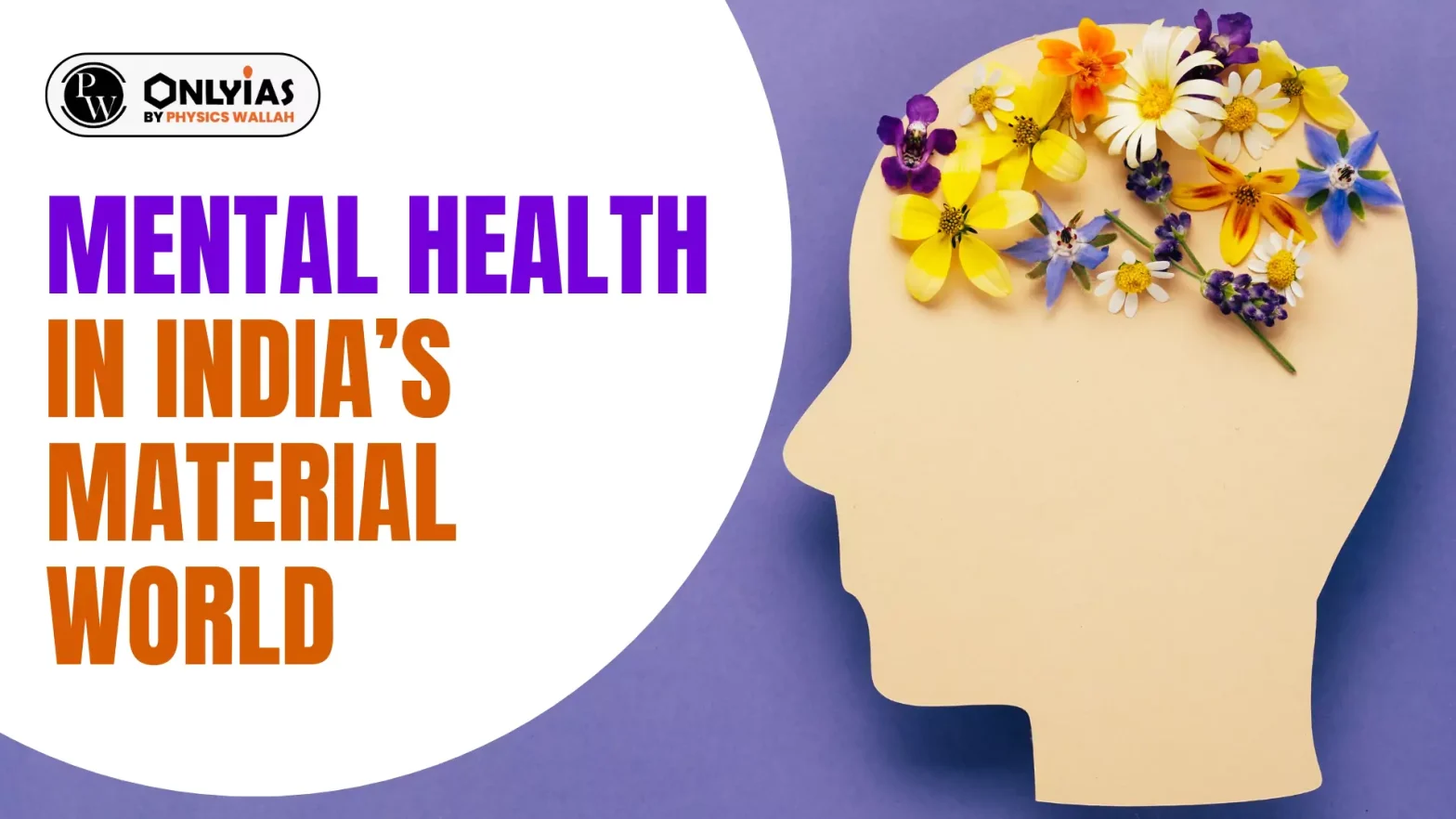This year’s World Mental Health Day theme on October 10 focuses on ‘prioritising mental health in the workplace’. In India, a mental health crisis is emerging, driven by urban living, financial instability, and intense competition.
Mental Health Issues in India
- Mental health issues in India have reached alarming levels, affecting millions. Recent cases highlight this crisis:
- In July 2024, a 26-year-old woman named Anna died due to extreme work pressures.
- In September 2024, a 38-year-old man in Chennai ended his life while undergoing treatment for depression.
- According to The Lancet Psychiatry Commission, over 197 million people in India suffer from mental health conditions, including anxiety and depression—an alarming statistic comparable to Australia’s entire population.
- The pressures of modern life, driven by a growing economy, have led to longer working hours and diminished family time, resulting in increased mental stress.
Enroll now for UPSC Online Classes
Problems Contributing to Mental Health Decline
- The modern era has also raised existential questions that many ignore due to the relentless pace of life.
- Socrates famously stated, “The unexamined life is not worth living,” emphasising the need for self-reflection.
- Aristotle’s concept Eudaimonia refers to the concept of living a complete and fulfilling human life
- However, people today prioritise material success—salaries, promotions, and new gadgets—over introspection.
- Ernest Becker’s concept of the fear of insignificance explains why many chase material possessions, believing they will provide worth.
- In urban areas, consumerism has skyrocketed, with shopping malls constantly promoting new products, making individuals feel inadequate without them.
- Advertisements flood our daily lives, pushing the idea that material goods are essential for happiness.
- Recent policies, like the Karnataka Shops and Commercial Establishments (Amendment) Bill 2024, which allows longer work hours, exacerbate these issues, limiting individuals’ ability to unwind and focus on mental well-being.
| Retail therapy, also known as shopping therapy, is the act of buying things to improve your mood or feelings. |
Solutions for Improving Mental Health
- Strong social connections and supportive communities are vital for mental health.
- For instance, community gardens in Brazil have fostered connection, allowing individuals to share experiences and reduce stress.
- Proposed community initiatives include organising sports events, cultural activities, and establishing community libraries. These efforts foster belonging and purpose, essential for alleviating mental health concerns.
- The definition of freedom must evolve. Many equate freedom with consumerism, yet retail therapy often leads to fleeting satisfaction.
- Instead, we should prioritise programs that promote mindfulness and social-emotional learning, alongside traditional education.
- Schools should incorporate mental health education, teaching students to manage their emotions and social interactions.
- The role of government is crucial in enhancing mental health facilities, reducing inequalities, and ensuring strict working hour regulations. Expanding green spaces can also promote well-being.
Check Out UPSC NCERT Textbooks From PW Store
Conclusion
Ultimately, a fulfilling life is not defined by material wealth but by our relationships with ourselves, our communities, and our environment. By prioritizing mental well-being, equity, and community, we can create a healthier society where individuals feel valued and supported. Addressing the root causes of the mental health crisis is essential for fostering a meaningful and fulfilling future for all.
![]() 10 Oct 2024
10 Oct 2024

